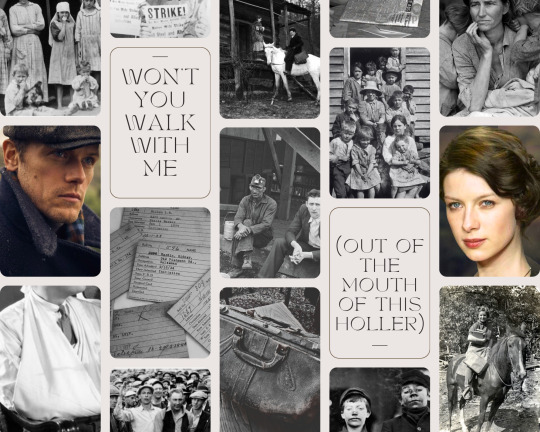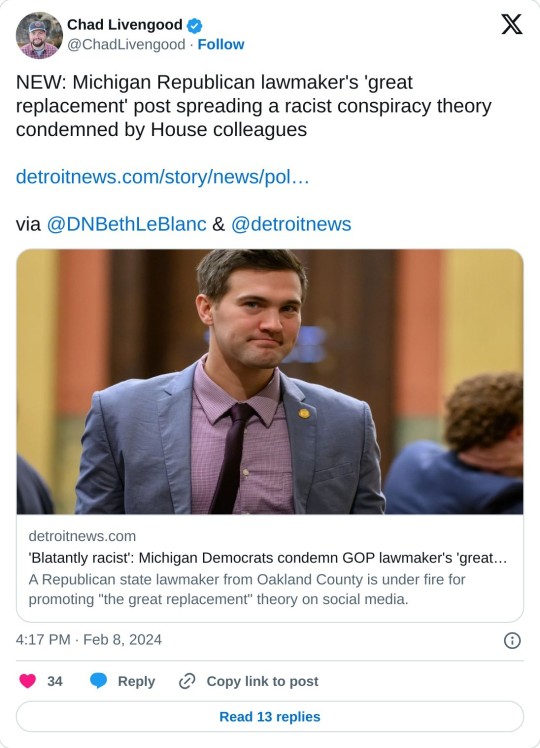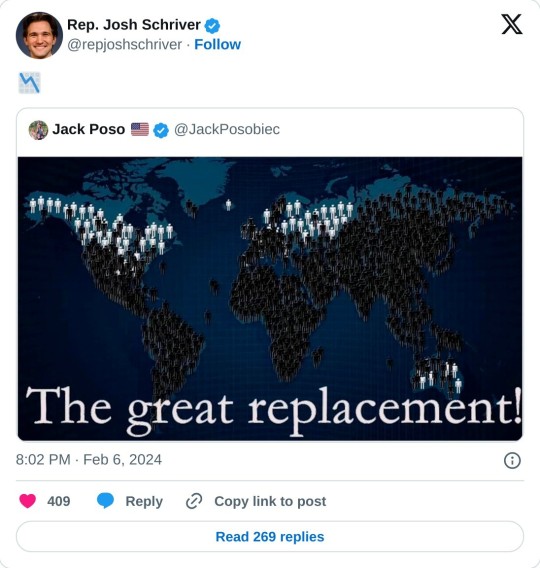#oxford history of the united states
Text
Wrapped up the last book of the Oxford History of the United States:
Wrapped up the last book in the Oxford History of the United States. This book and its immediate precursor are the only two books in the series written by the same author and it was written and published in 2005, hence why it stops in the 2000 timeframe. It expands on the theme of the previous book that the political and legal changes of the 1960s ran into some very hard stops in cultural and social aspects of the South. It leads to both a cautious optimism that the tide of social progress leads forward that looks much sourer in the eyes of 2016 than it did in 2000 and an equally cautious view noting that 2000, like the 1888 election, was a case of the system having a hitch that is in the eye of the beholder.
On the whole the main benefit of it is that it is a single-volume history charting Ford, Carter, Reagan, H. Dubya, and Clinton when the very recentness of these means that a book like this is near-impossible to find.
7/10.
#lightdancer comments on history#book reviews#oxford history of the united states#from watergate to bush vs. gore
0 notes
Text

“Oxford Group Members Arrive In Toronto,” Toronto Star. December 8, 1932. Page 2.
----
Members of the Oxford Group, which arrived in Toronto to-day, come from many walks of life. Numbered among the members of the group are (1) Miss Mairi Clarkson, B.A., of Hona, Oxfordshire, who declares ‘Christianity is more fun than cocktail parties’; (2) Baronees Lillian Van Heockern Van Kell of Holland; (3) Vice Admiral Sidney Robery Drury Lowe, C.M.G., war veteran and enthusiastic peace worker, and (4) Rev. Frank Buchman, formerly of Detroit, founder of the Oxford Group.
[More about Buchman here and the Oxford Group here.]
#toronto#oxford group#frank buchman#new religious movement#lutheranism#lutheran sect#high society sect#house party#united states history#great depression in canada#detroit#christianity in canada
0 notes
Text
Neoliberalism denies society's power to shape human subjectivities, instead imagining a free-willed, autonomous individual unaffected by material circumstance. It also decontextualizes and dehistoricizes human agents and their objects, in effect de-culturing the world in a way that allows commodities (and, according to Olivier Roy, religions) to be sold and consumed transnationally by diverse individuals in sundry places. At its core, then, it depends upon a fancifully imagined human subject that is completely unfettered by its history and social locations. Neoliberalism, write the anthropologists Jean and John Comaroff, "re-visions persons not as producers from a particular community, but as consumers in a planetary marketplace: persons as ensembles of identity that owe less to history or society than to organically conceived qualities."
Sean McCloud, "Haunting Desires: Agency in an Era of Possessions," in American Possessions: Fighting Demons in the Contemporary United States (New York, NY: Oxford University Press, 2015), 107.
157 notes
·
View notes
Text
intifada washing
WHITEWASH (verb)
deliberately attempt to conceal unpleasant or incriminating facts about (someone or something). (Oxford Dictionary)
DOGWHISTLE (noun)
an expression or statement that has a secondary meaning intended to be understood only by a particular group of people. (Merriam-Webster Dictionary)
PLAUSIBLE DENIABILITY
anything illegal or unethical that can be explained away under an innocent and probable guise [whether] true or otherwise. (Law Dictionary)
These calls for an intifada are not metaphorical. This is an explicit call to violence. The red upside down triangle emoji is what Hamas uses in livestreams before they hit their (human) target.

WHAT WERE THE INTIFADAS?
The word intifada comes from an Arabic word meaning “to shake off,” but it’s a term used for violent uprisings or rebellions. It was first used in the 1950s to describe the Iraqi Intifada, a series of violent protests to overthrow the Hashemite dynasty.
In the Israeli-Palestinian context, there have been two intifadas, which were campaigns of bombings, suicide bombings, stabbings, car-ramming, lynchings, and stone-throwing, primarily directed at civilians. It’s worth noting that the stones in question here weren’t small pebbles, but rather, large stones that killed people.
Some apologists claim that an intifada doesn’t necessarily describe a violent campaign because the word simply comes from the term for “shake off.” But this is a completely disingenuous argument, like claiming “Mein Kampf” simply means “my struggle” or “sieg hiel” simply means “hail victory.”
Objectively, the intifadas deteriorated the living conditions of Palestinians. It was in response to the intifadas that Israel enacted checkpoints and constructed the West Bank wall. Thousands of Palestinians were killed in the intifadas, both in retaliatory IDF attacks and by fellow Palestinians on the charge of being collaborators. If history teaches us anything, there is no strategic reason to call for an intifada. An intifada won’t destroy Israel or free Palestine; it will provoke Israel to tighten restrictions. The only reason to call for an intifada is if one wishes for Israelis to be murdered. The only reason to call for a global intifada is if one wishes for Jews to be murdered.
ARE THE PROTESTORS CALLING FOR AN INTIFADA CALLING FOR VIOLENCE?
Unequivocally, yes. While every person in attendance surely doesn’t understand what they are calling for, the organizers of the protests — those leading the chants and encouraging people to follow — very much know. In fact, they themselves have ties to groups that slaughtered innocents in the last intifadas.
Virtually all “pro-Palestine” protests in the United States are organized by groups such as Within Our Lifetime, Students for Justice in Palestine, and Samidoun.
Samidoun has ties to the internationally-recognized terrorist group the Popular Front for the Liberation of Palestine, has an office in Tehran, and is banned as a terrorist organization in Germany. The PFLP participated in both intifadas, killing scores of innocents, such as Dror Forer and Aran Bachar in 1993 (First Intifada) and three teenagers in the Karnei Shomron Mall suicide bombing in 2002 (Second Intifada).
Within Our Lifetime and Students for Justice in Palestine both openly support Hamas, other Islamic Republic proxies, and the October 7 massacre. SJP’s founder, Hatem Bazian, is also the co-founder of American Muslims for Palestine, an organization formed by former members of the HolyLand Foundation, KindHearts, and the Islamic Association of Palestine, all of which were disbanded after its members were convicted of transferring material support to Hamas.
Hamas took responsibility for two suicide bombings during the First Intifada and at least 54 suicide bombings during the Second Intifada.
To them — to the people leading these protests — the intifadas have always been synonymous with violence against civilians. In deed and in action, they are showing us that another intifada would be no different.
IS CALLING FOR AN INTIFADA ANTISEMITIC?
In this context, yes. Firstly, you have to understand that just about half of the world’s Jews live in Israel. In all Palestinian intifadas, all Israeli civilians were not only considered fair targets, but were in fact the preferred targets. If you believe every single Israeli is a fair target, then what you believe is that half of the world’s Jews are a fair target. That is no less genocidal than believing all of the world’s Jews are a fair target. Not even Hitler killed half of the world’s Jews; a third of the world’s Jews were murdered in the Holocaust.
It’s simply disingenuous to divorce calls for a Palestinian intifada from antisemitism. While Israelis of all backgrounds were killed at the hands of Palestinian terrorists in the intifadas, the terrorists sought Jewish areas, not, say, Druze villages.
During the intifadas, Palestinian leaders mobilized their population with explicitly antisemitic rhetoric, drawing from unfavorable Hadiths about Jews, the Protocols of the Elders of Zion, and even Mein Kampf. Both political and religious leaders delivered speeches and sermons rife with antisemitism. There is absolutely no reason to believe another intifada would be any different; the October 7 terrorists also mobilized with antisemitic rhetoric (“Mom, I killed ten Jews!” one of the October 7 terrorists said excitedly in a phone call to his mother).
As far as the rhetoric prompting Palestinians to take up arms against Israel, nothing much has changed. In May 2021, for example, senior Hamas official Fathi Hammad went on the Hamas-run Al Aqsa TV channel and asked Palestinians in Jerusalem to “cut off the heads of the Jews.”

This is Izz al-Din Shuheil al-Masri of Hamas, who, in 2001, during the Second Intifada, carried out a suicide bombing at a Sbarro pizzeria in Jerusalem, killing 16.
Al-Masri, like other Palestinian suicide bombers, recorded a video before his attack, where you see him holding a Quran, as he, like others like him, justified his attack by pointing to Muhammad’s struggle against the Jews in the seventh century.
According to suicidologist Adam Czabański, Palestinian suicide bombers during the intifadas were predominantly motivated by the concept of an Islamic “holy war” against the Jewish state. In other words, they saw this as a matter of Muslims versus Jews.
DESENSITIZING THE PUBLIC
Maybe when you call for an intifada, you do not believe that you are calling for violence. Maybe you don’t believe that you are calling for the murder of Jews. Maybe your friends don’t either. But the thing is that it doesn’t matter. This is much bigger than you and your friends. You are getting swept up into a movement headed by groups with nefarious intentions.They are duping you, because they know you, like any decent person, want to stand on the side of justice.
No matter the state of antisemitism in the west eight months ago, you couldn’t just walk into a university quad and start openly screaming about killing Jews, because thousands of students wouldn’t join you that way. You start by desensitizing people to antisemitic rhetoric, through the use of dogwhistles and by relying on plausible deniability. This desensitization of antisemitic rhetoric leads to the eventual desensitization of antisemitic violence. This is how propaganda works, how dangerous people draw gullible people into their movements.
Consider that it took nearly six years from the Nazis’ rise to power for them to carry out their first antisemitic pogrom in 1938, euphemistically known as Kristallnacht, or “the night of the broken glass.” Despite the increasingly oppressive antisemitic policies in Nazi Germany, and the blatant antisemitic rhetoric and propaganda of its leaders, after Kristallnacht, the majority of the German public — and even some Nazi leaders! — expressed their disapproval of the violence, so much so that the regime ordered the press to downplay it. And yet, less than a decade later, by 1945, Nazi Germany had managed to exterminate six million Jews to little protest from the population. The desensitization happened incrementally. (I am not saying the Holocaust will happen again, so please don’t put words in my mouth. I am illustrating how people are desensitized to antisemitic violence).
ON THE IMPORTANCE OF LANGUAGE
Over the past decade, our society has taken great care to clean up its language, more than ever before. There are so many terms we’ve stopped using because they come from problematic histories and have been deemed harmful for a marginalized population. We’ve discussed microaggressions and political dogwhistles. We’ve talked about impact over intent.
Yet somehow we are meant to believe that when crowds of thousands led by groups with intimate ties to those with Jewish blood on their hands call for an intifada, something that, certainly in the Israeli-Palestinian conflict, has only ever been a bloodbath, fueled by antisemitic rhetoric and incitement, we are meant to just trust that these people are not calling for violence against Jews? Please. How gullible do you think we are? Why do you continue to gaslight us?
When calls for an intifada are coupled with images of the inverted red triangle, a Hamas marker of violence, are we meant to believe that this doesn’t really imply violence against Jews? When you chant “there is only one solution, intifada revolution,” are we meant to ignore that this alludes to the Final Solution? That the chant explicitly rejects a two or a one-state solution in favor of violence against Israeli civilians, the majority of whom are Jews? When you scream for a global intifada, are we simply meant to ignore that the Islamic Republic’s terror network slaughters Jews not only in Israel, but in the diaspora as well? Are we meant to ignore that this rhetoric has correlated with the skyrocketing of violent antisemitic incidents elsewhere around the globe, including murder, kidnapping, synagogue bombings, and rape?
You are asking us to put a whole lot of trust that your violent words don’t actually mean violence just eight months after the single deadliest day for Jews since the end of the Holocaust.
#Israel#October 7#HamasMassacre#Intifada#october7#Palestinianpropaganda#propalestineprotesters#propalestinebullshit#metoounlessurajew#wehadenough
62 notes
·
View notes
Text
Won't You Walk With Me (out of the mouth of this holler), chapter 1

Her classmates all think her mad. Well, perhaps they had before regardless, considering that she'd exerted firm but inexorable pressure in order to get special permission to continue her training even after she and Frank had gone to the registry office that whirlwind autumn afternoon, and that she'd chosen to attend training in the first place when she might have been living comfortably in Oxford under the wings of Uncle Lamb's former colleagues, or at least their wives. But they especially think Claire mad now when, rather than exert a similar pressure on Frank to force him to change his mind, she accepts with enthusiasm his proposal that they move to the United States — and not to a city either, but to a particularly rural area of Kentucky.
Part of that decision had been the softening in her when she'd seen Frank's excitement upon receiving the letter from his cousin — the exuberance and eagerness for exploration which has been missing from him as he taught the basic and uninspired lecture courses he had been assigned to groups of competent but equally uninspired students. Now Frank's cousin Jonathan, owner of Randall Mining Limited, was asking that Frank come and research a history of the local mine and the mining company for publication. It was an involved, independent project which would allow the sort of consultations with fellow experts and enthusiasts and deep, devoted examination of archives that Frank had always loved.
But part had also been that Claire had assumed that this would be like the travels of her childhood, that even if giving up her nursing courses just before their completion was more of a wrench than convincing Uncle Lamb to keep her out of school had ever been, she and Frank would be a team the way that she and her uncle had been. The idea of going to a new place had never frightened her, although perhaps that came more than a bit from the fact that amidst all the strangers and the unfamiliarity, there was always someone steady she could rely on, someone who sought to include her in his work and appreciated her contributions to it…someone who would always be home.
In that respect, Kentucky turns out to be a bitter disappointment.
Read more on AO3...
65 notes
·
View notes
Text

Character: Indiana Jones
Warnings/Important info: Fem reader, implied English or at least has been to Oxford University. Angsty, miscommunication.
Notes: I watched Indiana Jones the other day and obviously my first crush never leaves because young Harrison Ford as an archaeologist adventurer is just *chefs kisses*

It's bizarre really, potentially concerning, worrying to a degree, that after 5 years you know the back of his head from a glance. Suffice to say you try not to draw attention to yourself when you recognise who stands mere meters away from you talking to two of his students about antiquarianism.
Maybe you should have expected it, after all Henry Jones seemed to have a way of haunting you. Maybe you should have been prepared to see him, despite assuming that the United States was so vast that your move from the University of Oxford to Marshall College as a newly qualified Doctor of History would certainly not guarantee seeing him. Perhaps, it was the Moirai, the fates, trying to test your resolve or simply coincidence.
But, after five years without a single letter, a single telephone call or telegram, you certainly weren't keen to stick around and have a conversation with the man. Besides, you had lectures to teach, students to help, papers to grade (okay, maybe not the last one considering it was in fact the very first day of the academic year).
It is with a sharp back peddle that has you careering into a pair of students behind you with a clipped apology that you make your daring escape and it is a surprised call of your given name that has you freezing, turning about face and responding with a strangled "It's actually Dr. Y/L/N now."
"What? I'm not allowed to call you by your name anymore? Guess you've already recinded the right to call you Honey Bee too." There are students stopping to watch, what feels like the entire student body eager to watch the new History professor and the most loved Archaeology professor at each other's throats. A mystery arising from their familiarity and a curiosity at what history lay between the two. You certainly weren't eager to put on a show.
With a flick of the wrist you smooth down your skirt, turning on your heels and walk away calling out to him, "It was a pleasure to see you again, Dr Jones." It leaves Indiana gaping in the centre of the quad, watching the sway of your hips and the click of your shoes on the pavement as you leave him behind.
You choose to ignore the bubble of anxiety it puts in the pit of your stomach all day. Your lectures help to distract you at least somewhat from the reality that your former...you're not even sure what to call him...something, is present and working at the same university as you and you briefly wonder if it isn't too late to go back to your job at Oxford. You're sure Professor Haylett would let you come back, you might need to grovel a bit but...perhaps that was preferable to the potential mess that was being in close proximity to Henry again.
The last time you'd see each other, he'd been a 27 year old Archaeology professor. Young, dashing, charming, with every student at the University of London eager to please him and hoping the American would give them extra attention. You had been a 23 year old History PhD student, one of the few women allowed to do so, after much hard graft and determination. You had refused to let anything or anyone distract you from your studies, from your goal...and then you'd been told that he could help you with your PhD, that he had some specific knowledge on the Battle of Syracuse that you could use and...you'd found yourself suitably distracted. You would be being bitter and unfair if you didn't admit that in the year you'd known him he'd helped you with your thesis immensely...but he'd also put your reptuation at risk, broken your heart and made promises that he never would fulfil. Your mother was right...romance was certainly a tricky business.
You're so frazzled at the end of the day that you don't even recognise that your office has the lights on, if you had, you would have stopped before entering, instead you bulldozer your way in and stumble at the sight of him sat in a chair waiting paitently as if he wasn't phased one bit by your reappearance in his life.
"So, Honey Bee, you gonna tell me why I get such a frosty reception?"
"Yo-The absolute...I cannot...ugh!" You find yourself unable to stutter out a complete sentence as you slam the door shut, it reverberating on its hinges. "You have some nerve, Henry Jones! As if you don't bloody know!" You storm around him, putting the hard wood desk between the two of you and shuffling papers to keep from looking at him knowing he'd melt your anger in a second just with a smile.
He always had the most ridiculous ability to placate you and you wanted to feel angry today, not soothed like a skittish horse or malcontent cat.
"Sweetheart, if I knew I wouldn't have asked!" It's the silky smoothness giving away to frustration that causes you to look up, your bottom lip shuddering under the weight of the sadness that sits in your chest, old feelings that you thought you'd processed and put to bed coming to the surface.
"You promised..." He's silent, confusion deepening as you take a deep breath and begin to pace back and forth behind your desk, agitation growing with each movement. "You promised to write me, to call or send a telegram and you never did. I...I waited to hear from you and I heard nothing. So I am dreadfully sorry, Henry, if I do not feel particularly like pleasentries or intimiate nicknames in front of an entire cohort of students! I have had to earn my place and I am still fighting for respect and no man, one who doesn't even honor his promises, is going to ruin this for me!"
You are breathing heavily, body warm, shoulders rising and falling with every agitated movement of your lungs as he looks down at his lap. Silence falls between you for so long that you turn to look out the window of your office, at the street lamps with their warm glow, the last few students wandering across campus as evening sets in.
"I did...I wrote you." His voice is low, quiet, the sort of quiet that Henry Jones never was, so quiet in fact that you turn to check he actually spoke.
"I wrote every day for three months...half of it was stupid, five lines about my day or a single sentence to say hello. I wrote for three months, sweetheart."
"Three months?"
"Three."
"But, I never...how...if you wrote for three months then how on earth did I not receive a single one!" You're unsure if you believe him, at the same time you never knew Henry to be a liar and it...it boggles your mind. There's an impending sense of your world teetering on it's axis, emotional whiplash as you feel a soaring sense of hope, yet a feeling of disbelief, fear, all rolled into one.
"I don't know, honey, but I wrote for three months to 21 Hanover Street and you never wrote me back so I assumed...I assumed you'd moved on, found yourself a nice, sensible husband and gotten married!" There's an anger that you'd never noticed til now, a sense that he'd been hurt to, that he'd felt like you'd abandoned him. So far removed from the debonair, rakish persona he so often displayed.
"21 Hanover Street? You wrote to 21 Hanover Street?"
"Yes, goddamn it!"
"Henry...I lived at 12 Hanover Street."
"What?"
"I lived at number 12, one two, not two one. 12!" It is so absolutely absurd that you can't help but start laugh rather hysterically. That you felt abanonded all these years, angry, resentful, heartbroken and he'd simply gotten the wrong house number, a stupid, ridiculous mistake that had broken your heart into pieces, only to reforge it again.
"You're telling me that for three months I was writing to the wrong address...?" Henry is out of his chair, rounding the table and closing the distance between you so fast that it makes your head spin...or perhaps that is the effect of the emotional journey you're currently experiencing.
"I'm afraid so..."
"Goddamn it...well, shit, honey..." There's a pregnant pause as your eyes scan his profile, the frustrated set of his brow, the clench of his jaw, the familiar bend of his nose. He's not changed, not really. He's older, more lines around his eyes than last you remember, and a few more grey hairs, but then you're older too. Your first grey hairs finally settling in, the soft baby fat of your face having melted away somewhat over the years. But, he's still Henry and you're still the busy Honey Bee he used to chase around the library to the chagrin of the librarian. Things haven't really changed, you realise. With the removal of the one point of hurt between you, you can acknowledge that you still love him without the weight of anger or heartbreak pushing it down.
"Henry?"
"Yeah, sweetheart?"
"Kiss me." It makes you laugh against his mouth how quickly he follows your request, the scrape of his stubble against your skin an old, familiar sensation that you'd all but forgot. It was like coming home, so familiar that it sent a sharp stabbing sense of yearning into your chest even as his arms wrapped around your waist and pulled you to him.
The woodsy smell of his cologne surrounds you, the familiar tweed of his suit jacket scratches your arms, the soft strands of his hair through your fingers, the press of his nose against your cheek. It's like there hasn't been five years since you last kissed, like you hadn't been so angry with him up until five minutes ago that it hurt.
God, and to think, you'd nearly gone your entire life thinking he'd never cared. All because he'd mixed up two simple numbers.
329 notes
·
View notes
Text

An appropriated photograph of a woman with a veil (possibly a prostitute) by Harry A. Atwell (1879-1957) from Stanley Wolukau-Wanambwa's One Wall a Web exhibition/project.
Stanley Wolukau-Wanambwa’s One Wall a Web is an exhibition that gathers together work from two discrete photographic series that he made in the United States: Our Present Invention (2012–2014) and All My Gone Life (2014–2016). Both the series and the exhibition draw their titles from the poetry of Muriel Rukeyser.
One Wall a Web not only explores the mutability of archival images, but the ongoing presence of history in the present day. According to Wolukau-Wanambwa, the exhibition attempts to address “the normalcy of fear, separateness and violence in a moment suffused by them, but also in a culture riven by the habitually limited prescriptions of images.” The exhibition comprises two distinct strands of photographs: the first, a series of appropriated archival 4 × 5 inch negatives; the second, a series of original photographs.
Stanley Wolukau-Wanambwa is a photographer, writer, and editor of The Great Leap Sideways. He has a BA in Philosophy & French from Oxford University, UK and an MFA in Photography from Virginia Commonwealth University. He has contributed essays to catalogues and monographs by Vanessa Winship, George Georgiou, and Paul Graham. His photographic work addresses questions of patriarchy, race, history, and identity.
54 notes
·
View notes
Text
mutant file (logan howlett x fem!oc)

name: michaela isabella fiore
alias: natura
day of birth: june 22nd, 1968 (32 in X Men 1)
height: 5'6
category: mutant (alpha level)
abilities: chlorokinesis, toxikinesis, toxic immunity, genius
residence: xavier school for gifted youngsters
occupation: doctor and biology teacher
affliction: x-men (since 1990)
state: alive

history
"early life"
Michaela Isabella Fiore, born on 22 June 1968, daughter of Paul and Francesca Fiore in the borough of Brooklyn, New York. Both are children of first-generation Italian immigrants to the United States. Working class, they ran a flower shop in North Brooklyn. Currently retired.
The first mutant gene samples are demonstrated in a biology class during primary school. According to the teacher's reports, during an experiment where students were asked to grow a bean in a beaker, Fiore's plant grew "abnormally". Other school reports state that, during high school, girls who were picking on Michaela reported to the teacher that Fiore had planted manure in her lockers. It was never proven.
Michaela continued her studies and was awarded one of the Xavier Scholarships for Gifted and Talented Youth at New York University, where she graduated with a major in Botanical Biology and Toxicology and a minor in Genetics,where she met Sara Kinney. She later obtained her PhD at Oxford, with a thesis on assisted mutation in various plants for medical purposes.
"xavier school for gifted youngsters and X Men"
Since her doctorate at Oxford in 1990, Michaela Fiore has been a registered biology teacher at Xavier School for gifted youngsters. She is also a member of the X Men team, along with Scott Summer alias Cyclops, Jean Grey alias Marvel Girl, Ororo Munroe alias Storm, Kurt Wagner alias Nightclawer and Hank McCoy alias Beast.
However, Fiore's work is more oriented towards laboratory work and the development of new ways to treat the injured mutants who come to the school.
Some field missions are recorded. Despite little hand-to-hand training, Fiore's skills allow her to get the upper hand in a ranged fight.
During the 2000s, the X Men had several clashes with the notorious ex-terrorist Magneto and his Brotherhood of Mutants. As well as battles against the government against the Mutant Registration Act and the "Mutation Cure". Both Dr. Fiore and Dr. Grey advocated against both of these in Congress.
During this time, new members join the X-Men: Remy LeBeau aka Gambit, Anna Marie aka Rogue, Piotr "Peter" Nikolaievitch Rasputin aka Colossus, Robert Louis "Bobby" Drake aka Ice-Man, Katherine Anne "Kitty" Pryde aka Shadowcat and Logan Howlett aka Wolverine.
...
2006➜ ERROR, FILE NOT FOUND
ONE SHOTS SET AFTER DAYS OF FUTURE PAST
Currently, the X Men grouping is still unleashed by Scott Summers aka Cyclops, Ororo Munroe aka Storm and Logan Howlett aka Wolverine. Michaela Fiore does not take part in the field missions and shares the position of deputy director with Dr. Jean Grey.
The Sentinel menace was stopped in 1973 by a mutant named Mystique, who saved the president from Magneto.
currently, 2024 (nobody's dead, we're all happy and forgetting the timeline, FUCK TVA)
The school remains the same as it has been all these years, but the threats don't stop. Recently, records came in about a trafficking of mutant children being experimented on by an illegal organisation on the Mexican border.
The X Men are working on it at the moment.
character analysis
Michaela is a kind and optimistic person. Over the years she has gained more experience and control over her powers, which makes her a confident person. At first she was reluctant to be introduced to the X-Men, but her colleagues convinced her.
She spends much of her time in the underground lab at X-Mansion, alongside Jean Grey and, on occasion, Hank McCoy.
Her first encounter with Logan, aka Wolverine, was not a pleasant one. The mutant awoke from his coma (induced by the Professor) altered and confused, so he attacked Michaela and scarred her back with his claws. Michaela, in response, put him to sleep with chloroform, until the Professor arrived.
The two slowly, slowly worked out their differences.
For their personalities clash quite a lot. Logan is a lone wolf, while Michaela is all about teamwork. But according to Cyclops, they're both equally annoying.
Despite appearances, constant bickering and "mutual hatred", there is a pact of respect between the two. They will never say it to each other's faces, but they are very fond of each other. (Everybody knows it, except them).
now some headcannons
The X Men affectionately refer to Michaela as Mickey or Dr. Mickey.
Logan refers to her as "kid".
Mickey refers to him as "old dog".
Mickey wears a necklace with a St. James medal, a legacy from her paternal grandfather Jimmy Fiore.
Mickey doesn't know that Logan's real name is James.
The children shipped their biology teacher and the history teacher (i.e. them).
Michaela was upset after Logan's departure after fighting Magneto.
And when he left again.
And again.
He has commitment issues (no shit).
Apparently he always fixes it when he comes back.
The X Men always party when he comes back, they go to a bar a few miles from the school.
Our girl can't stand alcohol (she's given Logan endless lectures on the problems of alcohol), but on these occasions she has a margarita or two.
Bad idea.
She's a lightweight.
Very funny until she throws up.
Logan always ends up looking after her.
But not without laughing the next morning, delivering her own sermons against her.
Again, children SHIP them.
Bobby tried to lock them in a classroom. It was fun until Logan chased him all over the mansion.
Logan offers to teach Michaela how to fight.
She has improved a lot.
He always ends up in a cold shower.
Sometimes they are found in the kitchen at night, or in the greenhouse or laboratory.
Logan suffers from chronic nightmares, about his past, about Weapon X, PTSD...
Michaela is only used to little or no sleep. She lives in a mansion with hundreds of children, there must always be someone awake.
They do not normally speak at these meetings.
The next morning it's back to normal.
Michaela lives in coffee.
Logan hates coffee.
Logan always makes Michaela coffee.
They will end up together. For sure. But there are bets hanging around.
Even Magneto, in his plastic prison, asks the Professor for updates.
"Any news on...?" "Not that I know of." "For God's sake, Charles! You're a mind reader!"
ONE SHOTS
incoming...
#logan howlett x fem!reader#x men 2000#x men#x men days of future past#x men dofp#logan howlett x reader#logan#logan howlett#wolverine x reader#wolverine x oc#wolverine xmen#logan howlett x oc#wolverine
45 notes
·
View notes
Text
Did you know that the US Constitution does not give citizens the right to vote? There is no affirmative right to vote in the original document, only a requirement that the states define it. Amendments forbade discrimination based on gender and race relatively recently, but deciding who can vote has been a contentious issue since the country was founded. From the start (for the most part) only property-owning white men had the privilege, but even that varied by state and location, and few founders believed that universal suffrage was desirable or even possible in a democracy.
Teri Kanefield has written a great summary of the practice— link and except are below. This has been a contentious issue from the beginning. Just because you have the privilege today, don’t expect that people in power want you to keep it.
A government “of the people, by the people, and for the people” raises a question: Who is included? Who are the people? It is obvious that if you can’t vote, you are not one of the “people” in “We the People.”
If you zoom out and take a look at the history of voting rights from 30,000 feet, you see this:
In the colonies and early America, the right to vote was restricted to white men who owned property. (Some colonies imposed other restrictions.)
“Jacksonian Democracy,” the era of President Andrew Jackson, expanded the franchise to all white men. The Jacksonian idea was that a poor barely literate white man on the frontier should have the same voice as a well-educated easterner. (Jackson—an unrepentant enslaver, a slaughterer of Native people, and a fan of white men on the frontier—despised East Coast “elites.” As a practical matter, those elite Easterners generally didn’t approve of taking land from Native people, whereas those white guys on the frontier were fine with raiding and plundering lands belonging to Native people, so Jackson wanted their votes.)
After the Civil War, the vote was extended to Black men in theory. In practice, voter suppression tactics and terror tactics kept most Black men from the ballot box.
The 19th Amendment added all women, in theory. In practice, it added white women.
The Civil Rights and Voting Rights Acts of the 1960s attempted to expand the right to vote to all Americans by enforcing the 14th and 15th Amendments. The 26th Amendment lowered the voting age to 18.
The current Supreme Court majority is not a fan of these voting rights acts and has sought to cut them back on the grounds that the Constitution does not contain an affirmative right to vote.
Until you get to that last part, you might think that “the history of voting in the United States has been characterized by “a smooth and inexorable progress toward universal political participation” until Justice Roberts and the current Supreme Court majority. Nope. This is from the Oxford Companion to American Law:
The history of voting rights has instead been much messier, littered with periods of both expansion and retraction of the franchise with respect to many groups of potential voters.”
51 notes
·
View notes
Text

New : Princess Elisabeth of Belgium, Duchess of Brabant will be studying at Harvard University (Harvard Kennedy School) in Boston, United States, since August 2024.
The Princess has recently passed the entrance tests for a two-year Master's study in Public Policy. This two-year master's degree will complete her university education after her bachelor's degree in history and politics at the University of Oxford (Lincoln College)
Princess Elisabeth was also selected for an Honorary Award from the Fulbright Program, the international educational exchange program of the US Department of State -May 7th 2024.
📷 : Bas Bogaerts/Belgian Royal Palace.
#princess elisabeth#duchess of brabant#belgian royal family#belgium#2024#may 2024#harvard university#united states#royal children#my edit
32 notes
·
View notes
Text
Amal Clooney
the perfect embodiment of feminine & masculine energy.
Feminine in her mannerisms and how she presents herself but rightfully masculine in her career, Amal Clooney is a beautiful representation of what it means to balance your feminine and masculine energy.

who is she?
Amal Clooney, now 44 years old, is an international lawyer, human rights activist, mother, and wife to the famous George Clooney. When she’s not representing powerful clients before international courts, she is advising political governments and individuals on legal issues. She is a brilliant woman known for her high profile cases, accomplishments, husband, and fashion. She is described as “a brilliant legal mind” and “knows her brief inside out”. Her accolades make her the ideal role model and inspiration for young women.
her background
Amal is a Lebanese-British lawyer and activist specializing in international law and human rights. She was raised in England by her educated father and entrepreneurial mother. Following high school, she studied at Oxford University and graduated with her bachelor’s before attending New York University of Law where she got her Master of Law degree. 

influenced by strong women
Amal is a product of her environment. As mentioned, she was raised by an entrepreneurial mother. Her mother, Baria Alamuddin, is an award winning journalist. Baria has interviewed some of the most notable and prominent figures in the world. Amal’s mother and grandmother both are strong supporters of women empowerment and education which you can see in Amal’s philanthropic work. Another example of being influenced by strong women is when she worked in the office of Sonia Sotomayor, the first woman of color and Latina to serve on the supreme court. She even had the pleasure of working with the judge for the United States Court of Appeals and a NYU Law faculty member. It’s obvious that Amal was fortunate enough to have examples of strong and powerful women not only in her home but in the workplace.
personality
I admire Amal for her intelligence, wit, and ability to keep most of her personal life private. Not much is said about her private life, but colleagues have mentioned that Amal has a ‘commanding presence”. This is obvious when watching her interviews — her energy fills the room. She never overshares or says more than necessary, but when she does speak it’s worth listening to. As you probably guessed, she is an intelligent woman. Fluent in English, French and Arabic. Her cleverness and well articulated speeches immediately captivates those around her.

love life
One person who was captivated by her mind is her husband George Clooney. In the world of law, she was already a celebrity but became one in the literal sense when she became involved with the well known bachelor, George Clooney. George had a long history of dating gorgeous, famous women but never settled down. He even publicly said he would never get married... this was until he met Amal in July of 2013, in Lake Como Italy.
Similar to Meghan Markle and Prince Harry, the two met through a mutual friend. This is why your connections, network, and personal brand matters — those can open more doors for you than a dating app can. While most women would fall at the feet of George, Amal didn’t. In fact, he chased her for months before they became serious. He claims he fell for her because of intelligence and personality, but I assume the chase also had a huge impact. Amal is highly intelligent and understands seduction. She knows if she were like every other woman, she would get treated like every other woman. Instead, she stayed committed to her career and mission while making time for him when she could.

In 2014, the two love birds became engaged only after a year of dating. The Clooney’s were married in Sept of 2014 by no other than the former mayor of Rome. Their beautiful multi-million dollar wedding was in Venice, Italy and was one to remember. After they said “I do”, the couple moved to a multimillion-dollar estate built on a small island in London before having their twins in 2017. Together the couple committed to philanthropic work for women’s and human’s rights. It’s rumored that they’ve donated over $22M to a variety of charities. In 2016, her and George Clooney founded Clooney Foundation for Justice. She has partnered with several other charities, such as Aurora Humanitarian Initiative, and has her own scholarship program to send young girls to college.

awards & achievements
I would love to end this off not talking about Amal’s love life but the amazing things she’s accomplished. Her list of her achievements and awards are way too long to cover so I’ll mention the few I thought were most notable. Amal was awarded the most fascinating person in 2014, the World Economic Forum’s 2016 Young Global Leader, and Time magazine’s Woman of the Year in 2022. Her fight for human rights has made her a noble activist, leader, and role model. She uses her celebrity status to shed light on political issues that may have otherwise been thrown under the rug.

Amal has shown us that you can be a feminine family woman while being successful at your career. Her brilliant mind has captivated the red carpet, magazines, and one of Hollywood’s best actors. Amal is an inspiring mother, wife, and activists. Her poise, style, and grace are just a few elements to her feminine charm. Her healthy balance of masculine energy is portrayed in her ability to relentlessly peruse her career, fight for meaningful causes, and excel in a highly competitive field.
X, @luxuryandbrown | You might like: Meghan Markle: Femininity Breakdown
470 notes
·
View notes
Text
Wrapped up the penultimate volume in the Oxford History of the United States:
Wrapped up the penultimate book of the Oxford History of the United States and the last humongous volume at 791 pages. The last one is less than 350. This one starts with the death of FDR and the end of the Second World War, then opts for a unique approach that sticks to the overall narrative framework but uses it as a superstructure for a set of topical looks that flesh out a fuller intersectional history of of the era of the Civil Rights Movement, the Vietnam and Korean Wars, and the Cuban Missile Crisis, as well as other lesser known moments of superpower rivalry.
Read in union with the rest it very much sticks to the realities that American self-perceptions and American ideas were somewhat different to the reality, in ways that signally mattered. It is in the swift changes of the 20 years from 1945 to 1965 that the United States became fully recognizable as it is now, with air conditioning, interstate highways, television, the emergence of the generation concept treated as a political and to a point empirical truth.
It also goes into much less detail on specific battles of the Korean and Vietnam Wars relative to the other volumes that center on major conflicts but this is at least in part a reflection of how these specific wars differed, and that in the end there were fewer individual battles that lingered in memory and history with equivalent importance. The clash on the Yalu between the US Army and the PLA 'volunteers' and the Battle of Hamburger Hill are the only battles gone into in any detail, specifically.
The book also underscores a very obvious point on why the Nixonian-Reagan backlash ultimately happened. To most white people at the time the wave of riots combined with securing rights long denied Black people proved that if Black people were 'given' things that were legally theirs all along all that would happen was massive upheaval and 'those people' burning 'their' cities and houses down.
This view and its set of blinkers, of course, continues to play a direct role in subsequent politics and one need only look at the Trump era to see how direct.
9/10.
0 notes
Text

Lansing — Democratic lawmakers are condemning a social media post from Republican state Rep. Josh Schriver of Oxford that promoted "the great replacement" theory, a racist ideological belief that there's a coordinated global effort to diminish the influence of White people.
On Tuesday, Schriver shared a post of a graphic that depicted black figurines covering most of a map of the world, with white figures occupying smaller sections of Australia, Canada, northern Europe and the northern United States. The bottom of the graphic read "The great replacement!"
The graphic, initially posted by right-wing pundit Jack Posobiec, was reposted by Schriver with an emoji of a chart showing a downward trend on X, the social media platform formerly known as Twitter.

In a statement Wednesday to The Detroit News, Schriver said he loved "all of God's offspring" and believed "everyone's immense value is rooted in the price Christ paid on the Cross when he died for our sins.
"I'm opposed to racists, race baiters, and victim politics," Schriver said in the statement. "What I find strange is the agenda to demoralize and reduce the white portion of our population. That's not inclusive and Christ is inclusive! I'm glad Tucker Carlson and Jack Posobiec are sharing links so I can continue my research on these issues."
The "great replacement" conspiracy theory asserts there is a coordinated effort to dilute the influence of White people through immigration and through low birth rates among White individuals, according to the Anti-Defamation League. The theory has been linked to anti-Semitism, with some versions alleging it is Jews coordinating the so-called replacement.
The shooter in a 2022 Buffalo, New York supermarket shooting that killed 10, most of whom were Black, raised the theory in a manifesto as a motive for the killings, the Associated Press reported. The killer in the 2018 Tree of Life Synagogue shooting in Pittsburg blamed Jews for bringing non-white immigrants to the U.S.; a 2019 Poway, California synagogue shooter claimed Jews were responsible for the killing of White Europeans; and a shooter who killed 23 people at an El Paso Walmart in 2019 talked about a "Hispanic invasion" in his manifesto, according to the Anti-Defamation League.
At least a half-dozen Republican U.S. Senate candidates promoted the "great replacement" conspiracy theory in the 2022 elections, the AP reported.
House Speaker Joe Tate, a Detroit Democrat and Michigan's first Black speaker, said Schriver's "blatantly racist social media post" and later statement on the issue do not align with the chamber's values and are "deeply and personally" offensive.
Schriver's insistence that the issue was worthy of consideration "puts his ignorance on full display," Tate said in a statement, but is not an excuse for "proliferating obvious hate."
“Perhaps most disturbing is that his post uplifts a dangerous and tortured narrative that fosters violence and instability," Tate said. "His callous and reckless act is not within the spirit of what Michigan is, and it contributes to a hostile environment."
Rep. Jason Hoskins, a Black Democratic lawmaker from Southfield, also criticized the post Wednesday night.
"Michigan House Republican celebrates Black History Month by promoting racist and dangerous conspiracies that there are too many people of color," Hoskins wrote on X.
House Republican Leader Matt Hall, R-Richland Township, did not respond to a request Wednesday night for comment about Schriver's post.
Rep. Kelly Breen, D-Novi, condemned the post as "blatantly racist" and "dangerous rhetoric" that has no place in society or in the state Legislature.
"It saddens & infuriates me that a colleague shared this," Breen wrote on X. "For someone who claims to love God - Rep. Schriver is blind to the fact this would make Him weep."
Elected in 2022, Schriver represents the 66th District in the Michigan House of Representatives, which includes Addison, Brandon, Oxford townships and most of Oakland Township in Oakland County and Bruce and Washington townships in Macomb County. The Warren native is a graduate of De La Salle Collegiate High School.
Schriver serves on the House Natural Resources, Environment, Tourism, and Outdoor Recreation Committee.
Condemnation of Schriver's post extended beyond Michigan political circles.
The Northern Guard Supporters, a fan group supporting the Detroit City Football Club, also condemned the post and said the first term lawmaker was not welcome among the fan group. Schriver's wife plays for the Detroit City Football Club women's team, which plays in the Premier Arena Soccer League.
Nick Finn, who helps run communications for the group, said fans "won't tolerate that in our stands." On X, Northern Guard Supporters noted that the league included "players from all ethnic backgrounds in a high minority population city."
"It’s very upsetting to see something like that, one, from any representative in Michigan, let alone one directly connected to a member our team,” Finn told The News on Wednesday.
14 notes
·
View notes
Text



John Barbour, the early Scottish poet, died on March 13th 1395.
Barbour was born, perhaps in Aberdeenshire, early in the 14th century, approximately 1316. In a letter of safe-conduct dated 1357, allowing him to go to Oxford for study, he is described as archdeacon of Aberdeen. He is named in a similar letter in 1364 and in another in 1368 granting him permission to pass to France, probably for further study, at the university of Paris.
In 1372 he was one of the auditors of exchequer, and in 1373 a clerk of audit in the king's household. In 1375 (he gives the date, and his age as 60) he composed his best known poem The Brus, for which he received, in 1377, the payment of ten pounds, and, in 1378, a life-pension of twenty shillings.
The only biographical evidence of his closing years is his signature as a witness to sundry deeds in the "Register of Aberdeen" as late as 1392. According to the obit-book of the cathedral of Aberdeen, he died on the 13th of March 1395. The state records show that his life-pension was not paid after that date.
Because much of his other work has been lost there is considerable controversy has arisen regarding Barbour's literary work. If he be the author of the five or six long poems which have been ascribed to him by different writers, he adds to his importance as the father of Scots poetry the reputation of being one of the most voluminous writers in Middle English, certainly the most voluminous of all Scots poets.
The Brus, in twenty books, and running to over 13,500 four-accent lines, in couplets, is a narrative poem with a purpose partly historical, partly patriotic. It opens with a description of the state of Scotland at the death of Alexander III, and concludes with the death of Douglas and the burial of the Bruce's heart, a period from the years 1286, unit 1332.
While the poem covers many thing, as in any good story there is a main topic, of course in The Brus it is The Battle of Bannockburn, and as you would expect, the King is the hero of the chivalric type common in contemporary romance., in this case fighting for the freedom of his country. While very few of us have read the poem, I guarantee that the majority can quote at least one line from it “ fredome is a noble thing “ or to quote this section of the verse;
A! fredome is a noble thing!
Fredome mayss man to haiff liking;
Fredome all solace to man giffis:
He lyves at ess that frele lyvs!
Translating to;
Ah, freedeom is a noble thing!
Freedom makes man to have liking!
Freedom all solace to man gives:
He lives at ease that freely lives!
As I said earlier, much of Barbour's other work is lost, one such piece is Stewartis Oryginale, a history of the lineage of the Stewarts. The Stewart name replaced that of Bruce in the Scottish royal line when Robert II acceded to the throne after the death of David II, his uncle. Robert II was Barbour’s royal patron. It is not known how the work came to be lost.
Much of the history of Robert the Bruce is taken from the poem The Brus, I do think a lot of it was exaggerated and written to please Robert II, who must have been proud to bare his Grandfather’s name, Barbour would have written the poem to please the King.
One of the most dramatic and lines in the poem refer to the first day of The Battle of Bannockburn when the young English Knight Henry de Bohun sees The Bruce and makes a foolish, but brave attempt to kill our Scottish hero.
The hevy dusche that he him gave
That ner the heid till the harnys clave.
The hand-ax schaft fruschit in twa,
And he doune to the erd gan ga
All flatlynys for him faillyt mycht.
That wes perfornyst douchtely,
Translated roughly to;
The heavy clout he gave
So he cleaved the head to the brains
The hand-axe shaft broke in two
And he ell to the ground
Dead and devoid of all strength now
This was the first blow of the battle.
No edition of the poem written in Barbour’s own hand survives, but two early versions, transcribed in the 15th century, still exist. These are kept at the Library of St John’s College, in Cambridge, and at the National Library of Scotland, Edinburgh.
Pics are a Memorial to John Barbour, St Machar's Cathedral, one of the 15th century translations, an 18th century translation at The National Museum of Scotland, Edinburgh, and the sentiment underlying the poem, which many of you may have seen sitting at the top of the Mound, as you take the steps up to Makar’s Court.
For a translation of the greater part of The Brus check the link here https://archive.org/.../bruceofbannockbu.../page/36/mode/2up
If you’re just after snippets, like I provide, the Scots Language Centre does a grand job.
13 notes
·
View notes
Photo

Capital of Mind: The Idea of a Modern American University
Adam R. Nelson’s "Capital of Mind" traces the beginnings of the first universities emerging in the 19th-century United States. While providing a history of American education and how it grew from a few scattered colleges, "Capital of Mind" is an intellectual history of how Americans thought about higher education, its role, and how it should be funded in the industrializing society.
Nelson, the Vilas Distinguished Achievement Professor of Educational Policy Studies and History at the University of Wisconsin-Madison, takes the title of his work from a quote by German economist Friedrich List.
List, an advocate of German tariff reform before fleeing to France in 1822, advocated for fewer trade restrictions between German states and more unity in supporting a single policy to restrict the flow of British goods to those states. While in Paris, List turned his attention towards the United States before docking in New York on June 10, 1825. Nelson quotes List saying, “The greater part of productive power consists in the intellectual and social condition of the individual, which I call Capital of Mind.” List found himself in a stirring debate between liberal economic policies - or free trade without restrictions - and protectionism. For List, a country’s productive power was tied to its intellectual power. Manufacturers at home needed protection from outside producers like Great Britain via tariffs. Education needed an answer inside the United States to foreign universities which Americans may be enticed to study at if their state lacked one.
Debates over free trade and protectionism raged in the early 19th century due largely to the Scottish economist Adam Smith’s popularization of the former but also due to the United States seeing a series of tariffs passed in 1816, 1824, and 1828 against imports largely targeting British manufactures.
Nelson notes in his Introduction that a modern university was an idea in its infancy in the 19th century. Some said it was several undergraduate colleges under one name, like Oxford or Cambridge; others said the learning should be practical and technical rather than classical. While Nelson says there was not a widely accepted definition, “its courses were to be not only classical but also practical. Its students were to be not only local but also national, even international. Its standards were to be meritocratic, but also, somehow, democratic. In the end, they agreed, a university should be more open, more liberal, and its very liberalism would make it modern."
Nelson makes the creation of the University of Virginia by Thomas Jefferson and the expansion of Harvard beyond a small college central to the development of this definition. Debates over Jefferson’s plan raged as he struggled to find a means for funding and stirred controversy when his first faculty were European professors. Harvard’s push for change came from one of its professors, George Ticknor. Before joining Harvard, Ticknor had traveled to Europe where he observed notably German universities which behaved like an economy where students had significant power as consumers. While not looking to replicate the German example entirely, Ticknor and Jefferson both inspired to see a more liberal institution arise as something grander and more open to students’ choices in their studies.
Capital of Mind, while focusing on the early 19th century, feels broad in scope. Nelson focuses greatly on Jefferson’s plan for a university and Harvard’s expansion but also devotes a significant portion of his work to names like Daniel Raymond, credited for bringing the study of political economy to intellectual circles in the U.S.
Scholars and students of intellectual history, history of education, or debates over government’s role in economics and education will find Capital of Mind a satisfactory addition to their studies. Aside from endnotes, Nelson includes a bibliographic essay where he directs further study for readers on several topics the book covers. Primary sources employed in the book include correspondence between Jefferson, Ticknor, and other figures like Edward Everett. Chapters dedicated to names like List and Raymond analyze works such as Fredrich Engels's "Outlines of a Critique of Political Economy" (1843).
The book is Nelson's second volume in an economic history of higher education. Volume 1, Exchange of Ideas: The Economy of Higher Education in Early America was released in 2023.
Continue reading...
7 notes
·
View notes
Text
It’s hard to find anyone these days who looks back on the U.S.-led response to the January 12, 2010, Haiti earthquake as a success, but it wasn’t always that way. Right after the disaster, even as neighborhoods lay in rubble, their people sweltering under tarps, the consensus—outside Haiti—was that America’s “compassionate invasion” (as TIME Magazine called it) had been “largely a success” (Los Angeles Times), offering further proof that “in critical moments of the history of mankind … the United States is, in fact, the indispensable nation” (Expresso, Portugal).
As the latest release of Hillary Clinton’s personal emails by the U.S. State Department Monday revealed, that perception was not an accident. “We waged a very successful campaign against the negative stories concerning our involvement in Haiti,” Judith McHale, the under-secretary of state for public diplomacy and public affairs, wrote on February 26, 2010. A few weeks before, the public affairs chief had emailed newspaper quotations praising U.S. efforts in Haiti to Secretary Clinton with the note “Our Posts at work.” Clinton applauded. “That’s the result of your leadership and a new model of engagement w our own people,” she replied. “Onward!”
But one person even closer to the secretary of state was singing a different tune—very, very quietly. On February 22, after a four-day visit to the quake zone, Chelsea Clinton authored a seven-page memo which she addressed to “Dad, Mom,” and copied their chief aides. That informal report tells a continuing story of the unique brands of power and intelligence wielded by the Clinton family in Haiti and around the world—and of the uniquely Clinton ways they often undermine themselves.
First off, there was the secrecy. The memo—by a Clinton, with a master’s in public health from Columbia University, pursuing a doctorate in international relations from Oxford and with a prominent role at her family’s foundation—would have obliterated the public narrative of helpful outsiders saving grateful earthquake survivors that her mother’s State Department was working so hard to promote. Instead, like so much of the inner workings of the Clintons’ vast network, it was kept secret, released only in an ongoing dump of some 35,000 emails from Hillary’s private server, in response to a Freedom of Information Act Lawsuit wrapped up in the politics of the 2016 presidential election.
Chelsea Clinton was blunt in her report, confident the recipients would respect her request in the memo’s introduction to remain an “invisible soldier.” She had first come to the quake zone six days after the disaster with her father and then-fiancé, Mark Mezvinsky. Now she was returning with the medical aid group Partners in Health, whose co-founder, Dr. Paul Farmer, was her father’s deputy in his Office of the UN Special Envoy for Haiti. What she saw profoundly disturbed her.
Five weeks after the earthquake, international responders were still in relief mode: U.S. soldiers roamed Port-au-Prince streets on alert for signs of social breakdown, while aid groups held daily coordination meetings inside a heavily guarded UN compound ordinary Haitian couldn’t enter. But Haitians had long since moved on into their own recovery mode, many in displacement camps they had set up themselves, as responders who rarely even spoke the language, Kreyòl, worked around them, oblivious to their efforts.
“The incompetence is mind numbing,” she told her parents. “The UN people I encountered were frequently out of touch … anachronistic in their thinking at best and arrogant and incompetent at worst.” “There is NO accountability in the UN system or international humanitarian system.” The weak Haitian government, which had lost buildings and staff in the disaster, had something of a plan, she noted. Yet because it had failed to articulate its wishes quickly enough, foreigners rushed forward with a “proliferation of ad hoc efforts by the UN and INGOs [international nongovernmental organizations] to ‘help,’ some of which have helped … some of which have hurt … and some which have not happened at all.”
The former first daughter recognized something that scores of other foreigners had missed: that Haitians were not just sitting around waiting for others to do the work. “Haitians in the settlements are very much organizing themselves … Fairly nuanced settlement governance structures have already developed,” she wrote, giving the example of camp home to 40,000 displaced quake survivors who had established a governing committee and a series of sub-committees overseeing security, sanitation, women’s needs and other issues.
“They wanted to help themselves, and they wanted reliability and accountability from their partners,” Chelsea Clinton wrote. But that help was not coming. The aid groups had ignored requests for T-shirts, flashlights and pay for the security committee, and the U.S. military had apparently passed on the committee’s back-up plan that they provide security themselves. “The settlements’ governing bodies—as they shared with me—are beginning to experience UN/INGO fatigue given how often they articulate their needs, willingness to work—and how little is coming their way.”
That analysis went beyond what some observers have taken years to understand, and many others still haven’t: that disaster survivors are best positioned to take charge of their own recovery, yet often get pushed aside by outside authorities who think, wrongly, that they know better. Her report also had more than an echo of the philosophy of her Partners in Health tour guides. More than five years later, her candor and force of insight impress experts. “I am struck by the direct tone and the level of detail,” says Vijaya Ramachandran, a senior fellow at the Center for Global Development.
But then came the recommendations—and a second classic pitfall. Far from speaking uncomfortable truths to her parents’ power, Chelsea was largely agreeing with their own assessments. At a March UN donors’ conference for Haiti over which Bill and Hillary Clinton presided, the secretary of state would tell the assembled delegates that the global community had to start doing things differently. “It will be tempting to fall back on old habits—to work around the [Haitian] government rather than to work with them as partners, to fund a scattered array of well-meaning projects rather than making the deeper, long-term investments that Haiti needs now,” she said, nearly repeating her daughter’s dismissal of the “ad hoc efforts” that had defined the early response.
Bill Clinton had also long been scathing in his assessments of aid work there. As the Associated Press correspondent in Port-au-Prince before, during and after the quake, I’d followed him on his visits since becoming UN Special Envoy in mid-2009. In public, the former president called for better coordination between NGOs and donors. In private, after long, frustrating days in the Caribbean heat, he’d sometimes just go off, lighting into the nearest staffer about partners’ missed meetings and broken promises. The former president also loved to apologize for his own past actions—destructive food policies which flooded the Haitian market with cheap Arkansas rice, and ordering a crippling embargo that destroyed the Haitian economy during the reign of a 1990s military junta (some of whose members had been on the CIA payroll).
Yet those introspections rarely extend to the present. As anyone who’s covered the Clintons can tell you, they armor themselves with staffers who hit back against almost any hint of criticism—especially when an election is near. The one thing the Clintons never seem to question is the idea that they, personally, should remain in charge. And that is precisely what Chelsea recommended in her report:
“The Office of Special Envoy—i.e., you Dad—needs authority over the UN and all its myriad parts—which I do believe would give you effective authority over [the NGOs].” Her father, the former president, should be a “single point of authority,” she said—overseeing a replacement for the organizational system of government agencies, militaries and NGOs.
The truth is that Bill Clinton was already by far the most powerful individual in this flawed system, with Hillary close behind. She was guiding the U.S. response as secretary of state. He was already UN Secretary-General Ban Ki-moon’s Special Envoy for Haiti, head patron of the Clinton Foundation and co-leader of the newly formed Clinton-Bush Haiti Fund. Weeks later the couple would share the dais at the donors conference, where governments and aid groups pledged some $10 billion for Haiti’s recovery. Her father would soon accept the co-chairmanship of the Interim Haiti Recovery Commission, the quasi-government body charged with allocating many of the funds. (“Finally,” chief of staff Cheryl Mills wrote to the secretary in a March 29, 2010, email, when news of the appointment leaked to the Haitian press.)
The irony is that, after pages of scathing analysis about the failure of international responders to understand and respect ordinary people in Haiti, Chelsea Clinton’s plan would have created an even more powerful foreigner operating at an even greater remove. She did call on this new Super Clinton-led structure to “support the Haitian government,” but noted that it could only build “local capacity and capabilities, where feasible”—a logical loophole the U.S. government would fall back on time and again as it kept to old habits after all, including refusing to provide Haiti’s government with direct budget support.
As it was, that personality-driven leadership style meant the response to the Haiti quake would focus on priorities set by those surrounding them, rather than those of majority of Haitians. The new email tranche shows how quickly the construction of low-wage garment factories and prioritizing exports to the U.S. market came to the center of the U.S.-led response in Haiti. That strategy, authored by economist Paul Collier, was what Bill Clinton had come to Haiti to promote as special envoy before the quake. Little more than two weeks after the disaster, Mills, a former Clinton White House counsel who became her point woman on Haiti, forwarded the secretary a New York Times op-ed by Collier and consultant Jean-Louis Warnholz rebranding the pre-quake strategy as a form of post-quake reconstruction.
“He now works for us,” she noted for her boss, referring to Warnholz.
The new emails also show how Hillary’s staffers brought former Liz Claiborne Inc. executive Paul Charron into the fold to collaborate with Hillary Clinton and Warnholz on helping to make the garment factories a reality. “As I communicated to Jean-Louis, I am happy to be helpful to you and the State Department on this project,” Charron wrote Mills in August 2010. Around that time, Charron made a key phone call to a former Liz Claiborne colleague now working as an advisor for the South Korean garment giant Sae-A Trading Co. Ltd., to encourage that company to come up with an investment plan in Haiti, the New York Times reported two years later.
In 2012, Bill and Hillary Clinton attended the opening of the brand-new, $300 million Caracol Industrial Park in northern Haiti, with Sae-A as the anchor tenant.
Today, there has been little reconstruction in Port-au-Prince. Most quake survivors have moved back into precarious homes, hoping another disaster doesn’t strike. The country is still being ravaged by a cholera epidemic that began nine months after the earthquake and has killed nearly 9,000 people. Both Bill and Hillary Clinton have publicly acknowledged this epidemic, unrelated to the quake, was caused by United Nations peacekeepers—who in turn, as Chelsea correctly foresaw, have been able to avoid any semblance of accountability. President Michel Martelly, who Hillary Clinton helped put in office as secretary of state, is struggling to hold the country’s first elections since he took power, with observers watching warily to see if he will leave office next spring.
As for Caracol, the northern industrial park has created just 5,479 out of a promised 60,000 jobs when I visited in the spring, as workers complain about the long hours and low pay. Farmers who once tended land on the property complain they were pushed off without proper compensation (a claim the park’s boosters deny). Many of those living around the park now see it as the embodiment of the powerful Clintons’ disconnect. “They go to the park, but they don’t come to our village, because they care more about the park,” said Cherline Pierre, a 33-year-old resident who signs up would-be laborers near her home, a few miles from the park’s high gates.
All a reader plowing through the email tranche can do is wonder, what might have gone differently had Chelsea Clinton’s insights reached more people in real time, and if the Clintons had applied more of them to themselves. “I wish this had been made public when it was sent,” Ramachandran said of the report. “It might have helped.”
#Haiti#NGO's in Haiti#The Clintons’ Haiti Screw-Up#As Told By Hillary’s Emails#hillary clinton#us department of injustice#us state department#stealing from Haiti#CARACOL#United Nations
13 notes
·
View notes